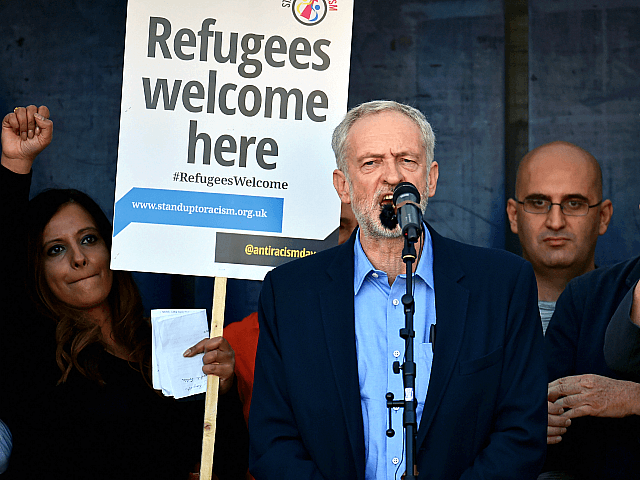Hard-left Labour Party leader Jeremy Corbyn has backed suggestions that the British should pay reparations to former colonies of the British Empire.
In an interview for Dazed magazine, musician Gaika discussed allegedly man-made climate change and Africa with the socialist politician, asking, “Do you think that Britain, in particular, with its history, has a special responsibility to its former colonies? Do you think that debt relief, reparations, things like this, are part of a global climate strategy?”
“Absolutely,” Mr Corbyn responded in comments reported by The Times, adding, “Debt relief and development goals that encourage the preservation of forests and the use of them in a sustainable way is perfectly possible.”
This is not the first time the Labour leader has responded positively to proposals for the British government — ultimately, British taxpayers — to pay reparations to former colonies, many of which are still members of the Commonwealth of Nations headed by Queen Elizabeth II.
In 2015, Mr Corbyn discussed reparations to Jamaica, saying that the United Kingdom “should apologise for the slave trade” and that he backed “a form of reparation” with measures such as “improv[ing] support for Jamaica.”
The comments had come after Britain — which gives 0.7 per cent of its GDP in foreign aid annually — pledged £300 million to the Caribbean to pay for infrastructure.
Later, in October 2018, Mr Corbyn said that schools should teach children about the “grave injustices” of the British empire and colonialism, and “how slavery interrupted a rich African and black history”.
He insisted that black history should be taught all year round, not just during Black History Month — with another month in the calendar, like LGBT History Month, dedicated to the celebration of diversity.
A similar proposition to overhaul how European countries teach their histories was supported as part of vote in the European Parliament in March.
MEPs voted in a landslide to support a motion that would encourage EU members to develop “anti-racism policies” and combat ‘Afrophobia,’ including a requirement that every child receives a “comprehensive” education on colonialism and slavery.
The motion also called on EU institutions to “rectify past injustices and crimes against humanity, perpetrated in the name of European colonialism,” specifically by “carrying out reparations, such as apologising publicly and return[ing] stolen artefacts to their countries of origin.”
Meanwhile, another supranational body, the UN, demanded in February that Belgium apologise for its colonial past, scolding the country’s Royal Museum for Central Africa for not removing “offensive, racist” exhibits — despite the museum undergoing a ten-year “decolonisation” renovation project.
Late last year, France’s progressive president Emmanuel Macron also announced that the country would return 26 works of art to Benin, West Africa. He is also considering a report which calls for the return of thousands of colonial-era African-made pieces currently in France’s museums.
Germany has gone one step further by announcing it will be sending a European-made piece of heritage to Africa.
The Stone Cross of Cape Cross, which was erected on the coast of Namibia in 1486 by the Portuguese, before the object came into the possession of Germany, will be given to the south-west African country, Germany’s culture minister has said, as a gesture of reconciliation for colonisation.

COMMENTS
Please let us know if you're having issues with commenting.